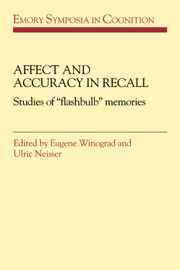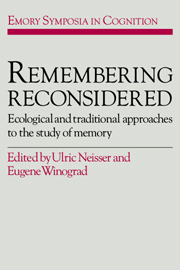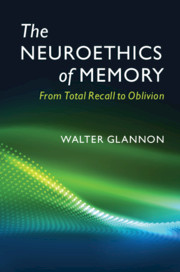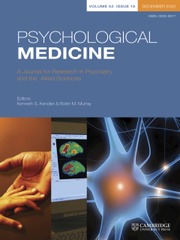Affect and Accuracy in Recall
Recollections of unexpected and emotional events (called 'flashbulb' memories) have long been the subject of theoretical speculation. Previous meetings have brought together everyone who has done research on memories of the Challenger explosion, in order to gain a better understanding of the phenomenon of flashbulb memories. How do flashbulb memories compare with other kinds of recollections? Are they unusually accurate, or especially long-lived? Do they reflect the activity of a special mechanism, as has been suggested? Although Affect and Accuracy in Recall focuses on flashbulb memories, it addresses more general issues of affect and accuracy. Do emotion and arousal strengthen memory? If so, under what conditions? By what physiological mechanisms? This 1993 volume is evidence of progress made in memory research since Brown and Kulick's 1977 paper.
- A study of a fascinating aspect of memory research
- Uses research findings to illustrate theoretical points
Product details
March 2011Adobe eBook Reader
9780511878763
0 pages
0kg
19 b/w illus. 16 tables
This ISBN is for an eBook version which is distributed on our behalf by a third party.
Table of Contents
- Preface
- List of contributors
- 1. Introduction Eugene Winograd
- Part I. Empirical Studies:
- 2. Phantom flashbulbs: false recollections of hearing the news about Challenger Ulric Neisser and Nicole Harsch
- 3. Potential flashbulbs: memories of ordinary news as the baseline Steen F. Larsen
- 4. Flashbulb memories: confidence, consistency, and quantity John Neil Bohannon III and Victoria Louise Symons
- Part II. Developmental Studies:
- 5. Developmental issues in flashbulb memory research: children recall the Challenger event Amye Richelle Warren and Jeffery N. Swartwood
- 6. Preschool children's memories of personal circumstances: the fire alarm study David B. Pillemer
- Part III. Emotion and Memory:
- 7. A proposed neurobiological basis for regulating memory storage for significant events Paul E. Gold
- 8. Remembering the details of emotional events Daniel Reisberg and Friderike Heuer
- 9. Do flashbulb memories differ from other types of emotional memories? Sven-Åke Christianson
- 10. Why do traumatic experiences sometimes produce good memory (flashbulbs) and sometimes no memory (repression)? Elizabeth F. Loftus and Leah Kaufman
- Part IV. Theoretical Issues:
- 11. Special versus ordinary memory mechanisms in the genesis of flashbulb memories Michael McCloskey
- 12. Remembering personal circumstances: a functional analysis David B. Pillemer
- 13. Constraints on memory David C. Rubin
- 14. The theoretical and empirical status of the flashbulb memory hypothesis William F. Brewer
- Author index
- Subject index.








